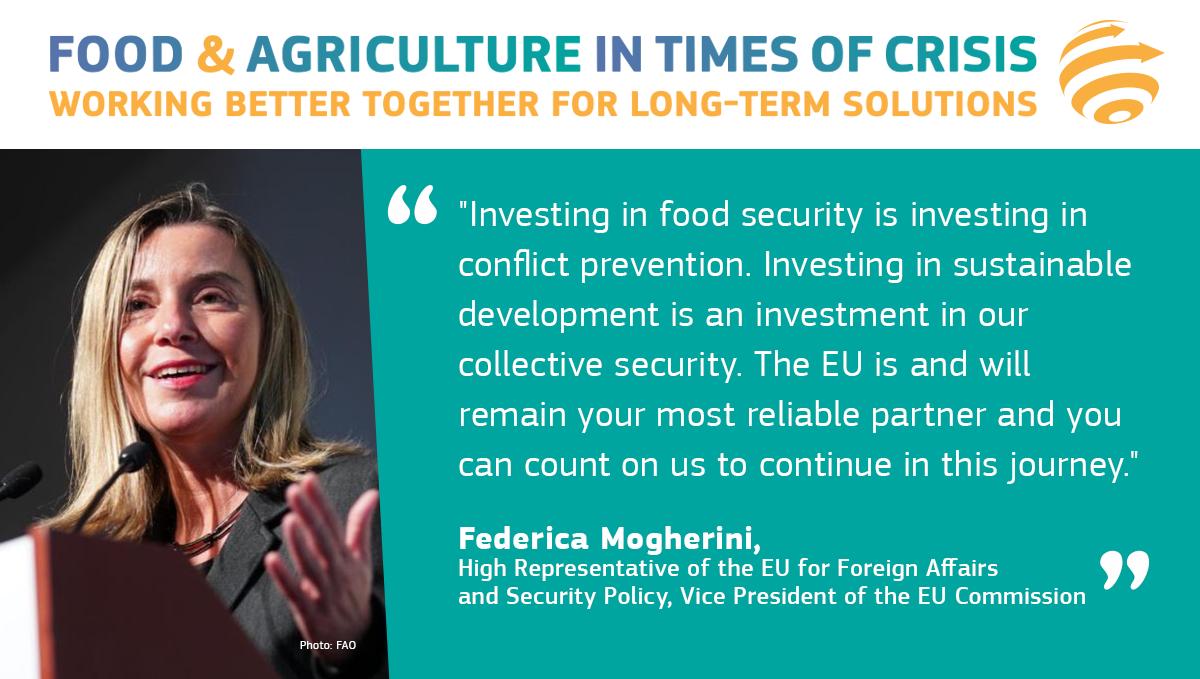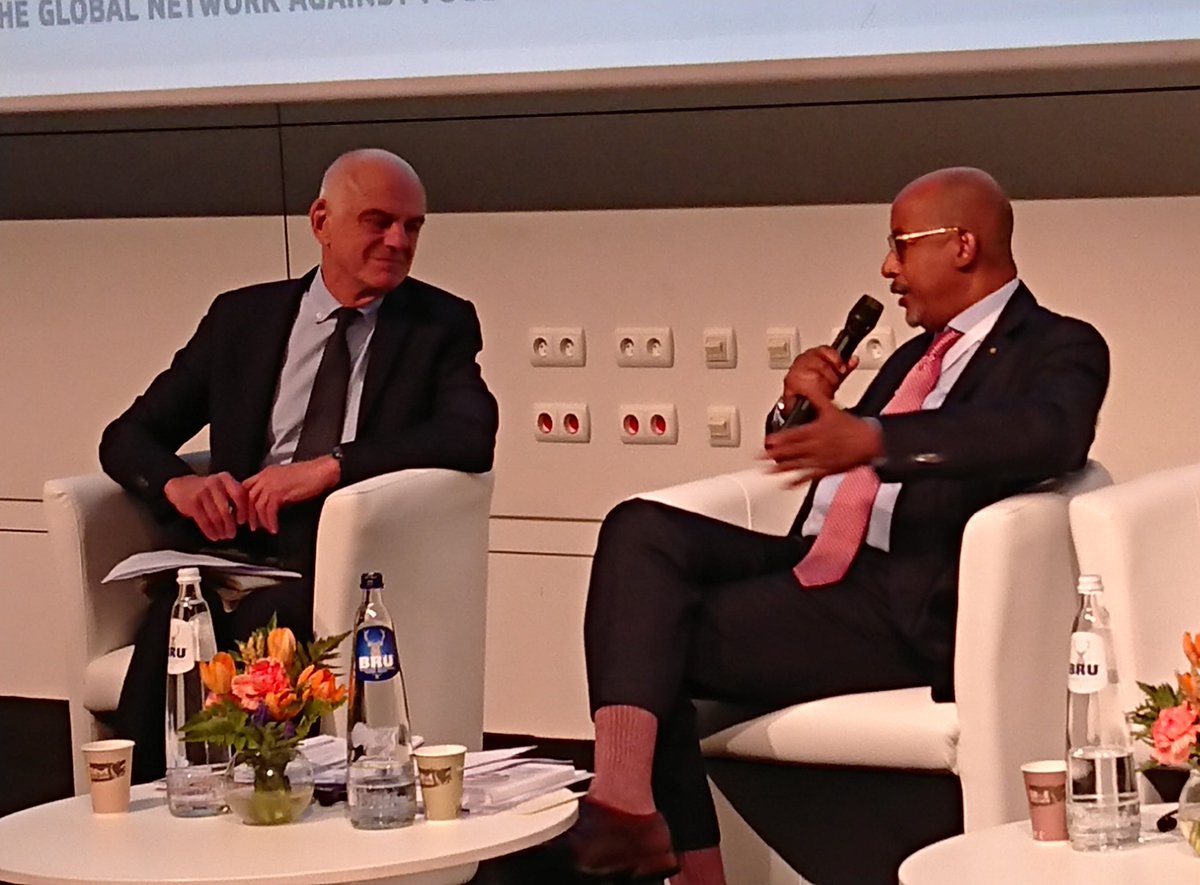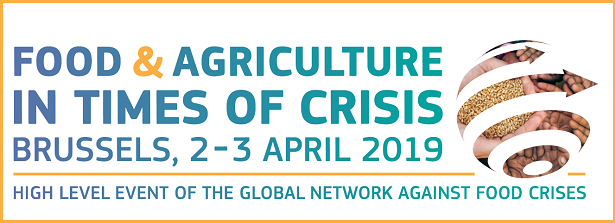EC High-level event on food and agriculture in times of crisis
2-3 April 2019. Brussels. The European Commission in Brussels – on behalf of the Global Network against Food Crises – hosted the high-level event on food and agriculture in times of crisis.
#FightFoodCrises
#FightFoodCrises
- Set the scene of the current and projected situation with respect to food crises and related trends and drivers based on solid and consensus-based evidence.
- Highlight current and future challenges and opportunities to reduce the risks of food crises, focusing on the role of agricultural livelihoods and related agri-food systems in the framework of social, environmental, economic and security dynamics.
- Review policies, initiatives, tools, and coordination mechanisms currently in place to address food crises, exploring whether emerging and recurrent challenges require changes and adaptive strategies, and defining areas for improvement and innovative solutions and partnerships.
- Draw political, strategic and operational conclusions and define a roadmap to address food crises, ensure food security and eradicate hunger by 2030.

- Neven Mimica, European Commissioner for International Cooperation and Development
- Christos Stylianides, European Commissioner for Humanitarian Aid and Crisis Management
- Phil Hogan, European Commissioner for Agriculture and Rural Development
- José Graziano Da Silva, Director-General, Food and Agriculture Organization of the United Nations
- David Beasley, Executive Director, World Food Programme
- Yves Daccord, Director General, International Committee of the Red Cross
- Shenggen Fan, Director General, International Food Policy Research Institute
- Djimé Adoum, Executive Secretary, Permanent Interstates Committee for Drought Control in the Sahel
- Mahboub Maalim, Executive-Secretary, Intergovernmental Authority on Development

The worst food crises in 2018, in order of severity, were: Yemen, the Democratic Republic of the Congo, Afghanistan, Ethiopia, the Syrian Arab Republic, the Sudan, South Sudan and northern Nigeria. These eight countries accounted for two thirds of the total number of people facing acute food insecurity – amounting to nearly 72 million people.
Related:
FAO and Africa-Europe Diaspora Development Platform (ADEPT) partnership focuses on links between migration, agriculture and rural development.
The agreement, signed in Brussels on the side-lines of the high-level event on Food and Agriculture in Times of Crises, marks the beginning of a formal collaboration in the areas of migration and rural development, with a focus on diaspora-related issues and agribusiness.
"We tend to underestimate the power of the diaspora in peace, development, humanitarian and, of course, around migration issues. We are signing this Memmorandum of Understanding with ADEPT today to work more closely together and give visibility to the potential diaspora holds, but also to what is already happening with diaspora communities," FAO Deputy Director-General Daniel Gustafson.
"Migration is a development driver generating positive change at the local andADEPT, an international non-profit based in Belgium, supports and empowers African diaspora
international level. The African diaspora is one of the key actors of this process, bringing about financial, intellectual and social contribution. We hope the FAO-ADEPT cooperation will enable us to join energies, knowledge, networks and expertise in two interlinked areas, migration and agriculture, for the benefit of the African people and continent." ADEPT President Khady Sakho Niang
development organizations based within the European Union, Norway and Switzerland. While helping to formally involve African diaspora groups in development processes in Africa, it also serves as a point of reference for those interested in African development issues, migration and development policy.
Related:
The Africa Women Innovation and Entrepreneurship Forum (AWIEF), which will celebrate its 5th year anniversary in 2019, has announced the dates for its prestigious annual conference and awards, which will take place at the Cape Town International Convention Centre (CTICC), 29-30 October 2019.
The conference theme this year is, Enhancing Impact: Digitalisation, Investment and Intra-African Trade. The two-day event aims to promote and accelerate the growth of women-owned and women-led businesses for Africa’s inclusive economic growth.




Comments
Post a Comment